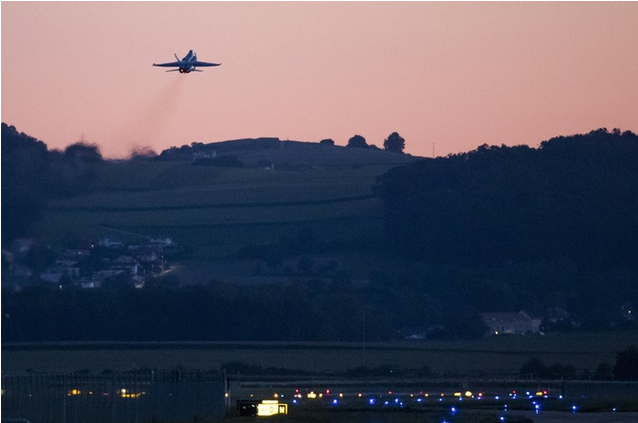The country’s current fleet of F-5 Tigers and F/A-18s is ageing. (Keystone / Peter Klaunzer) The Swiss parliament has approved the purchase of a new fleet of fighter jets to the tune of some CHF6 billion (.1 billion). The plans may yet face approval by citizens. Both chambers of parliament have now accepted plans proposed by the government to buy up to 30 new fighter jets, a step it says is vital for the stability and security of the country. As the current fleet of fighters used by the army are nearing the end of their use period, the government says, a new batch is needed to defend the country’s airspace beyond 2030. The CHF6 billion package approved by politicians on Thursday came after negotiations about “compensatory payments”, which stipulate that
Topics:
Swissinfo considers the following as important: 3.) Swiss Info, 3) Swiss Markets and News, Featured, newsletter, Politics
This could be interesting, too:
Investec writes The Swiss houses that must be demolished
Claudio Grass writes The Case Against Fordism
Nachrichten Ticker - www.finanzen.ch writes Die Performance der Kryptowährungen in KW 9: Das hat sich bei Bitcoin, Ether & Co. getan
Nachrichten Ticker - www.finanzen.ch writes Wer verbirgt sich hinter der Ethereum-Technologie?

The country’s current fleet of F-5 Tigers and F/A-18s is ageing. (Keystone / Peter Klaunzer)
The Swiss parliament has approved the purchase of a new fleet of fighter jets to the tune of some CHF6 billion ($6.1 billion). The plans may yet face approval by citizens.
Both chambers of parliament have now accepted plans proposed by the government to buy up to 30 new fighter jets, a step it says is vital for the stability and security of the country.
As the current fleet of fighters used by the army are nearing the end of their use period, the government says, a new batch is needed to defend the country’s airspace beyond 2030.
The CHF6 billion package approved by politicians on Thursday came after negotiations about “compensatory payments”, which stipulate that whichever foreign company lands the contract must reinvest a certain amount of it in Switzerland.
Initial stubbornness by the Senate around the extent of the payments were forced down to a compromise figure of 60%. Of this, 20% will be direct payments (i.e. to companies contributing to the building of the fighters) and 40% indirect, to other firms in the security and related sectors.
The list of such sectors – including watchmaking, chemicals, and plastics – was drawn up partially to assuage the fears of French-speaking regions, where the defence industry is rather absent; quotas for ensuring the money is divided across Switzerland have also been decided.
Public approval?
It’s not yet clear which company will provide the jets, though four are being considered: Dassault, Airbus, Boeing, and Lockheed-Martin.
Critics of the entire project, notably from the left, see the compensatory payments system as a way of extending surreptitious state aid to industries. The government says they are a further means of strengthening Swiss security.
The debate is not over: left-wing groups are planning to challenge the decision through referendum, for which they need to collect 50,000 signatures. A nationwide vote is thus likely, possibly later in 2020.
In 2014, voters rejected a planexternal link to buy 22 Swedish Gripen jets from Saab for CHF3.1 billion, overturning a decision by the Swiss parliament.
Tags: Featured,newsletter,Politics
